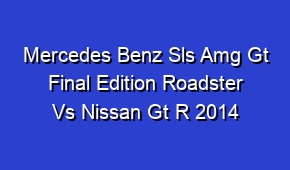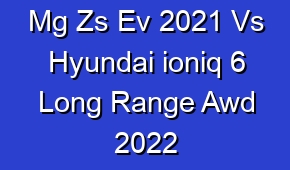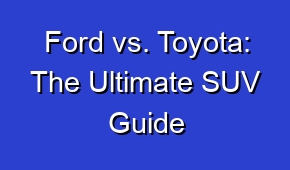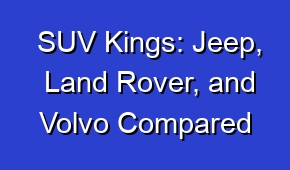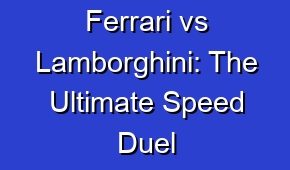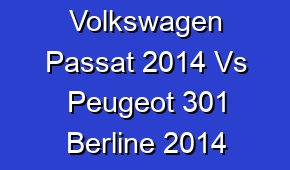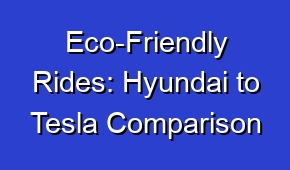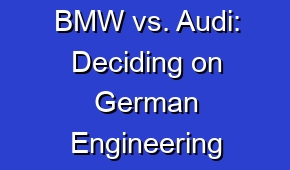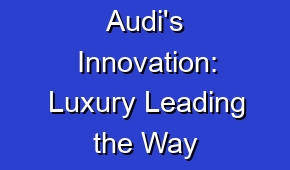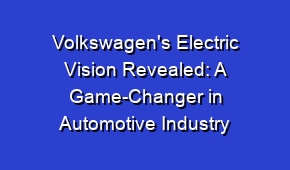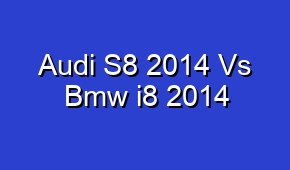Car Wrapping
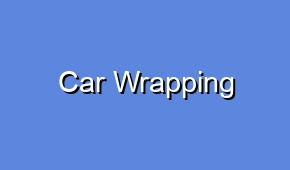
Car wrapping is a process of applying a vinyl film onto a vehicle’s exterior, changing its color or adding designs. It offers a protective layer and can be easily removed without damaging the original paint. Transform your car’s appearance and protect it with car wrapping.
Looking to enhance the appearance of your vehicle? Consider car wrapping as a cost-effective solution. Car wrapping involves applying a vinyl film to the exterior of your car, providing a fresh and personalized look. With a wide range of colors and finishes available, car wrapping allows you to transform your car’s appearance without the need for a new paint job. Whether you want a matte finish or a glossy look, car wrapping can give your vehicle a unique and eye-catching appeal. Additionally, the vinyl film acts as a protective layer, safeguarding your car’s original paint from scratches and UV damage. Contact us today to learn more about the benefits of car wrapping for your vehicle.
| Car Wrapping is a cost-effective way to change your vehicle’s appearance. |
| Protect your car’s paint from scratches, UV rays, and fading with a vinyl wrap. |
| A wide variety of colors, finishes, and textures are available for car wraps. |
| Car wraps can be easily removed without damaging the original paint of the vehicle. |
| Get custom designs, patterns, and logos on your car with vinyl wraps. |
- Car wraps can last up to 5 years with proper maintenance.
- Apply partial wraps to specific areas of your car for a unique look.
- Car wraps increase resale value by preserving the original paint underneath.
- Choose a professional installer for a flawless and long-lasting car wrap.
- Car wraps can be reversed to restore the original appearance of the vehicle.
What is car wrapping and how does it work?
Car wrapping is a process of covering a vehicle’s original paint with a vinyl wrap. The vinyl wrap is applied to the car’s surface using heat and pressure, creating a seamless and durable finish. This technique allows you to change the color or design of your car without permanently altering its paint job. Car wrapping is popular among car enthusiasts, businesses, and individuals who want to personalize their vehicles.
Is car wrapping a good alternative to repainting?
Yes, car wrapping is a great alternative to repainting. It offers several advantages over traditional painting, such as cost-effectiveness, protection for the original paint, and the ability to easily remove or change the wrap. Car wrapping also provides a high-quality finish that can mimic the appearance of a paint job, including glossy or matte finishes, metallic effects, and custom designs.
How long does a car wrap last?
The lifespan of a car wrap depends on various factors, including the quality of the vinyl wrap, the installation technique, and how well the vehicle is maintained. On average, a professionally installed car wrap can last between 5 to 7 years. However, with proper care and maintenance, some wraps can last even longer. Regular cleaning and avoiding harsh chemicals or abrasive materials can help prolong the lifespan of the wrap.
Can a car wrap be removed?
Yes, a car wrap can be easily removed without damaging the original paint. The vinyl wrap is designed to be removable, allowing you to revert your car back to its original appearance or apply a new wrap. Professional installers use specialized techniques and tools to safely remove the wrap, ensuring that the paint underneath remains intact and undamaged.
Does car wrapping provide any protection to the original paint?
Yes, car wrapping offers protection to the original paint of the vehicle. The vinyl wrap acts as a protective layer, shielding the paint from minor scratches, UV rays, and other environmental factors. This can help preserve the resale value of the car and keep the paint in pristine condition. Additionally, the vinyl wrap can be easily repaired or replaced if it gets damaged, without the need for repainting.
Can a car wrap be washed like a regular car?
Yes, a car wrap can be washed just like a regular car. However, it’s important to follow the manufacturer’s guidelines and use gentle cleaning products that are safe for vinyl wraps. Avoid using abrasive brushes or high-pressure washers, as they can damage the wrap. Hand washing with a soft sponge or cloth, using mild soap and water, is typically recommended. Regular cleaning helps maintain the appearance and longevity of the wrap.
Can car wrapping be done on any type of vehicle?
Car wrapping can be done on most types of vehicles, including cars, trucks, vans, motorcycles, and even boats. The size and shape of the vehicle may affect the complexity of the installation process and the amount of vinyl wrap required. Professional installers have experience working with various vehicle types and can customize the wrap to fit the specific dimensions and contours of the vehicle.
Are there any limitations to car wrapping?
While car wrapping offers numerous benefits, there are a few limitations to consider. The condition of the original paint is important, as any imperfections or damage may be visible through the vinyl wrap. Additionally, wraps cannot be applied to rusty surfaces or areas with chipped paint. Extreme temperatures, such as intense heat or freezing cold, can also affect the durability and lifespan of the wrap.
Can a car wrap be used for advertising purposes?
Yes, car wrapping is commonly used for advertising purposes. Many businesses choose to wrap their company vehicles with custom graphics, logos, and contact information to increase brand visibility. Car wraps provide a cost-effective and eye-catching way to promote a business or product, as the vehicle becomes a moving billboard. The wraps can be easily updated or removed, making it a flexible option for advertising campaigns.
Is car wrapping a DIY project or should it be done by professionals?
While some individuals may attempt to wrap their cars themselves, it is generally recommended to have car wrapping done by professionals. Professional installers have the necessary skills, tools, and experience to ensure a high-quality and long-lasting result. They can properly prepare the vehicle’s surface, apply the vinyl wrap without wrinkles or bubbles, and ensure a precise fit. This minimizes the risk of damage to the vehicle and ensures the best aesthetic outcome.
What are the advantages of choosing a matte finish for a car wrap?
Choosing a matte finish for a car wrap offers several advantages. A matte finish gives the vehicle a unique and stylish appearance, different from the traditional glossy look. It can also help conceal minor imperfections or scratches on the vehicle’s surface. Additionally, matte wraps are less prone to showing dirt, fingerprints, and swirl marks, making them easier to maintain and keep clean.
Can a car wrap be repaired if it gets damaged?
Yes, a car wrap can be repaired if it gets damaged. Small tears or scratches on the wrap can be fixed by a professional installer using patch kits or vinyl repair techniques. In some cases, the damaged section of the wrap may need to be replaced with a new piece. It is important to address any damage as soon as possible to prevent it from spreading and affecting the overall appearance of the wrap.
What is the cost of car wrapping?
The cost of car wrapping varies depending on several factors, such as the size of the vehicle, the complexity of the design, the type of vinyl wrap used, and the location of the installation. On average, a full car wrap can range from $2,000 to $5,000. Partial wraps or smaller vehicles may cost less. It’s important to get quotes from multiple installers and consider the quality and durability of the materials used when comparing prices.
Can a car wrap be applied to a leased vehicle?
Yes, a car wrap can be applied to a leased vehicle. In fact, car wrapping is a popular option for leased vehicles, as it allows you to personalize the car without making permanent modifications. The vinyl wrap can be easily removed at the end of the lease term, ensuring that the original paint remains intact. It’s important to check the terms of the lease agreement and notify the leasing company before getting a car wrap.
What is the maintenance required for a car wrap?
Maintaining a car wrap is relatively simple. Regular cleaning using mild soap and water is recommended to remove dirt and debris. Avoid using abrasive cleaning products or brushes that can damage the wrap. It’s also important to avoid parking the vehicle in direct sunlight for extended periods, as prolonged exposure to UV rays can affect the longevity of the wrap. Additionally, it’s advisable to avoid using automated car washes with brushes, as they can cause scratches on the wrap.
Can a car wrap be customized with a specific design or logo?
Yes, car wraps can be fully customized with specific designs, logos, and graphics. Professional installers can work with you to create a unique and personalized wrap that reflects your individual style or promotes your business. Whether you want a sleek and minimalistic design or a bold and vibrant look, the possibilities are nearly endless. The design can be digitally printed onto the vinyl wrap, ensuring a high level of detail and precision.
Does car wrapping require any special care during the first few weeks?
Yes, it is important to take some special care during the first few weeks after getting a car wrap. Avoid washing the vehicle or exposing it to rain for at least 48 hours after the installation, as this allows the adhesive to fully bond with the surface. It’s also recommended to avoid parking the car near sources of intense heat, such as a hot exhaust or direct sunlight, as this can affect the wrap’s adhesion.
Can a car wrap be waxed or polished?
No, car wraps should not be waxed or polished. Wax and polish are designed for use on painted surfaces, and applying them to a vinyl wrap can cause damage or discoloration. Instead, it’s recommended to use specialized vinyl wrap cleaning products and protectants to maintain the appearance and longevity of the wrap. These products are formulated specifically for use on vinyl wraps and can help enhance the shine and protect against UV rays.
What are the options for removing a car wrap?
There are two main options for removing a car wrap: professional removal or DIY removal. Professional removal is typically recommended, as it ensures that the wrap is removed safely and without damaging the paint. Professional installers use heat and specialized tools to peel off the wrap, leaving the original paint unharmed. DIY removal can be done using heat and careful peeling, but it requires patience and caution to avoid damaging the paint or leaving adhesive residue.






